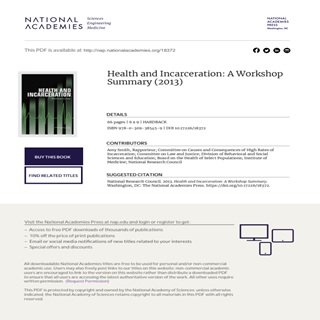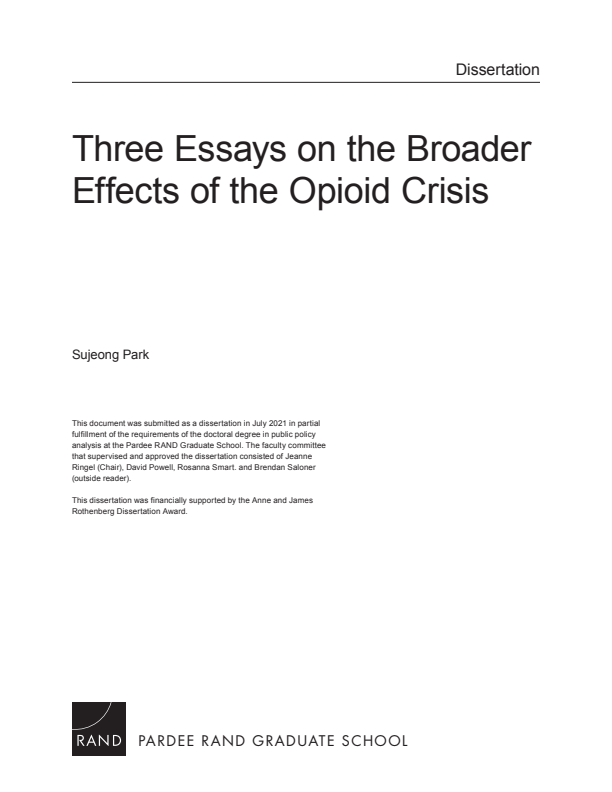By Amy Smith
Over the past four decades, the rate of incarceration in the United States has skyrocketed to unprecedented heights, both historically and in comparison to that of other developed nations. At far higher rates than the general population, those in or entering U.S. jails and prisons are prone to many health problems. This is a problem not just for them, but also for the communities from which they come and to which, in nearly all cases, they will return.
Health and Incarceration is the summary of a workshop jointly sponsored by the National Academy of Sciences(NAS) Committee on Law and Justice and the Institute of Medicine(IOM) Board on Health and Select Populations in December 2012. Academics, practitioners, state officials, and nongovernmental organization representatives from the fields of healthcare, prisoner advocacy, and corrections reviewed what is known about these health issues and what appear to be the best opportunities to improve healthcare for those who are now or will be incarcerated. The workshop was designed as a roundtable with brief presentations from 16 experts and time for group discussion. Health and Incarceration reviews what is known about the health of incarcerated individuals, the healthcare they receive, and effects of incarceration on public health. This report identifies opportunities to improve healthcare for these populations and provides a platform for visions of how the world of incarceration health can be a better place.
Institute of Medicine and National Research Council. 2013. Health and Incarceration: A Workshop Summary. Washington, DC: The National Academies Press








